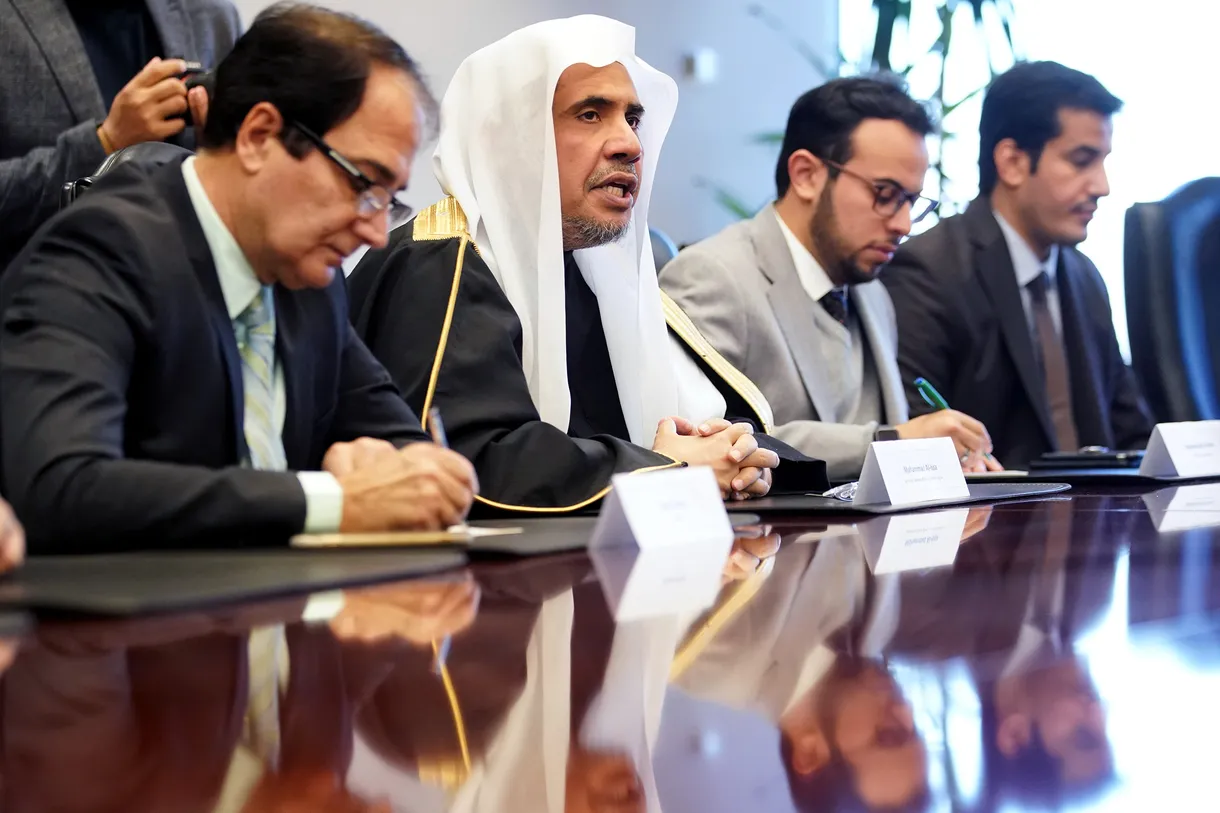Inside the newsroom: This week we sought an answer to a simple question to a very difficult problem
Latest NewsSALT LAKE CITY — Monday I greeted His Excellency Dr. Mohammad Al-Issa of Saudi Arabia as he came to sit before the Deseret News editorial board. This Muslim leader is secretary-general of the Muslim World League and was in Utah to meet with leaders of The Church of Jesus Christ of Latter-day Saints as well as Utah government officials.
His message was impressive. He spoke of the need to gain mutual understanding and meaningful cooperation across religions and countries. Since his appointment as secretary-general in August 2016, he has sought cooperation both internally and externally.
In May he brought together representatives of 27 different sects of Islam to Mecca to craft the Charter of Mecca, a document that is a statement of “moderate Islam” — principles that they believe speak to the true meaning of Islam.
In October His Excellency, representing the Muslim World League, met with the Foundation for Ethnic Understanding, a group specializing in Muslim-Jewish relations to announce a historic partnership to battle Islamophobia and anti-Semitism. They will meet again this month and in January.
His meeting with the First Presidency of The Church of Jesus Christ of Latter-day Saints was designed to bring mutual understanding and celebrate what the faiths have in common. As the Charter of Mecca’s first principle states (translated): “All people, regardless of their different ethnicities, races and nationalities, are equal under God.”
The Facebook posting to the league’s members noted: “From Makkah to Salt Lake City, we can do so much more together.”
Education, particularly of our youth, and building bridges of understanding are key to battling terrorism and extremism, he told our editorial board. Following an exploration of those principles I then asked him the simple question with the difficult answer:
Is world peace possible?
He considered the question and then responded in Arabic through a translator: “We have to believe so. We have to be optimistic.”
Saturday marked the 30-year anniversary of the fall of the Berlin Wall. Our editorial board wrote that two important lessons from that day are that “freedom and its many, varied benefits should never be taken for granted.” Secondly, “a free people have no moral right to treat one another with hatred or contempt in the political arena.”
The takedown of the Berlin Wall was a powerful symbol of the persistence of peace. Its fall is itself evidence that we can support the optimism expressed by His Excellency’s answer to our question on Monday.
Elder Dieter F. Uchtdorf, a member of the Quorum of the Twelve Apostles for The Church of Jesus Christ of Latter-day Saints, keeps a piece of the Berlin Wall in his office. His family left Czechoslovakia for East Germany when he was 4. At age 11 they fled East Germany for West Germany, starting over as refugees. Saturday, on his Facebook page, he posted his thoughts on what the fall of the Berlin Wall meant to him.
“We have to be optimistic.” — Dr. Mohammad Al-Issa
“I remember back to 1989 when people from each side of the wall began to meet each other,” he said. “We had similar dreams, aspirations, and hopes for our lives. Of course we had our differences too, but our intrinsic values and goals were similar. We found ways to focus on the similarities we had rather than the differences. Over time, the miracle of unity happened for Germany.”
Utah Gov. Gary Herbert also met with His Excellency Dr. Mohammad Al-Issa this week during his visit to Utah, building bridges of cooperation. Days later Herbert made an announcement that perhaps surprised others across the country. He said the number of refugees coming to Utah has dropped significantly. In a letter to President Donald Trump he said Utah is willing to do more.
“We know the need has not decreased and we are eager to see the number of admittances rise again,” he wrote the president.
That’s an attitude that is a step that help promote world peace.
Boyd Matheson, opinion editor of the Deseret News, appeared on KUED’s “The Hinckley Report” with Jason Perry this week and noted Utah’s unique ability to be a leader in this area.
“Utah does not look at refugees as liabilities to be managed, these are human assets, human potential to be fostered and developed. Utah has a history of being the most upwardly mobile place in the world,” Matheson said, noting Utah’s place as a national leader in providing opportunity and pulling people out of poverty thanks to its social instituti
ons, including the service ethic of Utahns.
“Utah is not just a crossroads of the West anymore,” Matheson said. “It’s a crossroads to the world and people are watching what we do.”
It’s why an influential leader in the Muslim world would make the long journey from Mecca in Saudi Arabia and arrive to these Western mountains to meet with the leaders of a Christian global faith.
Walls of all kinds fall. Peace does have a chance.
https://www.deseret.com/2019/11/9/20956839/inside-the-newsroom-this-week-we-sought-an-answer-to-a-simple-question-to-a-very-difficult-problem


